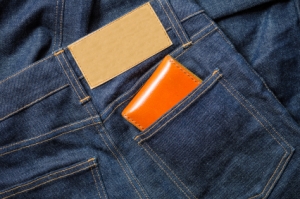Don’t Be An Unhappy “CAMP”er: Ignoring Second Circuit Mediation May Result In Grievance Panel Referral
By admin on May 5, 2016
 The Second Circuit advises litigants on its website that its mediation and settlement program (known as “CAMP”) is a long-standing and integral part of the court’s appellate process. The Second Circuit assigns “experienced and skilled circuit mediators” to work with counsel and their clients to resolve disputes on the court’s civil docket at no cost to the parties. Although the mediation process is considered “voluntary,” failing to appear at a CAMP may result in sanctions and, possibly, a referral to the Court’s Grievance Panel.
The Second Circuit advises litigants on its website that its mediation and settlement program (known as “CAMP”) is a long-standing and integral part of the court’s appellate process. The Second Circuit assigns “experienced and skilled circuit mediators” to work with counsel and their clients to resolve disputes on the court’s civil docket at no cost to the parties. Although the mediation process is considered “voluntary,” failing to appear at a CAMP may result in sanctions and, possibly, a referral to the Court’s Grievance Panel.
In late 2015, parties to a Second Circuit appeal were directed to appear at the offices of a prominent mid-town New York law firm for a CAMP mediation. The mediator appointed by the Court was a well-regarded litigation partner at the law firm. Appellant’s counsel failed to appear at the mediator’s office at the appointed time. By order, dated January 26, 2016, Circuit Judge Danny Chin ordered the parties “to show cause why disciplinary or other corrective measures should not be imposed on them” for failing to appear for the mediation.
In response to Judge Chin’s order to show cause, counsel advised the Court that that the appellant had “replaced” him as counsel and revoked his authority to speak on appellant’s behalf. Counsel anticipated that appellant’s new counsel would make a formal substitution of counsel, but apparently never did so. Judge Chin observed in his Order, dated March 14, 2016, that a party’s decision to replace counsel did not relieve counsel of their obligation to comply with Court orders until such time as the Court granted counsel’s party to be relieved. “As counsel of record, they were obligated to respond to the Court’s order that they appear at a mediation conference, at the very least to notify the appointed mediator that their representation was in question and to request an adjournment.” However, Judge Chin found it more troubling that appellant’s counsel viewed the court’s mediation program as optional. Judge Chin found it remarkable that counsel did not even show the court appointed mediator the professional courtesy of a telephone call to advise her that they were not intending to appear.
Judge Chin determined that he would not refer the matter to the Court’s Grievance Panel based upon his determination that: (1) counsel’s conduct was limited to one case and not likely to be repeated; (2) counsel accepted responsibility and conceded error; and (3) counsel did not act in bad faith.
Practice Tips
First, merely because a client has relieved a lawyer as his counsel, in both the trial court and on appeal, counsel should not assume that his judicial obligations have ended. Until such time as a motion for substitution of counsel is filed and granted by the court, counsel’s failure to respond to court orders may result in the imposition of sanctions. At a minimum, counsel should alert the court (or, in this case, the court-appointed mediator) that a substitution of counsel is in the offing. As a practical matter, this communication may provide the client additional time to effectuate a substitution of counsel. It also apprises the court and the adversary that conducting a mediation before the change of counsel has been effectuated would not be efficacious in resolving the dispute.
Second, a party’s failure to appear at a court-directed “voluntary” mediation, during either a trial court or appellate proceeding, also may result in the imposition of sanctions. In the SDNY, an increasing number of civil cases are being referred to mediation. Although the mediation process is confidential and the parties’ stated positions during mediation are never disclosed to the judge or magistrate handling the matter, it may be brought to the court’s attention if a party fails to appear for the mediation or, in the judgment of the mediator, fails to participate in the mediation in good faith. Although court-annexed mediation proceeds on a separate track from the court’s discovery scheduling order, the mediation program is an integral part of the judicial resolution process and must be treated as such by the litigants.

 Having now completed discovery, you have provided the client with a thorough assessment of its potential liability exposure in the case. You are set for trial.
Having now completed discovery, you have provided the client with a thorough assessment of its potential liability exposure in the case. You are set for trial.